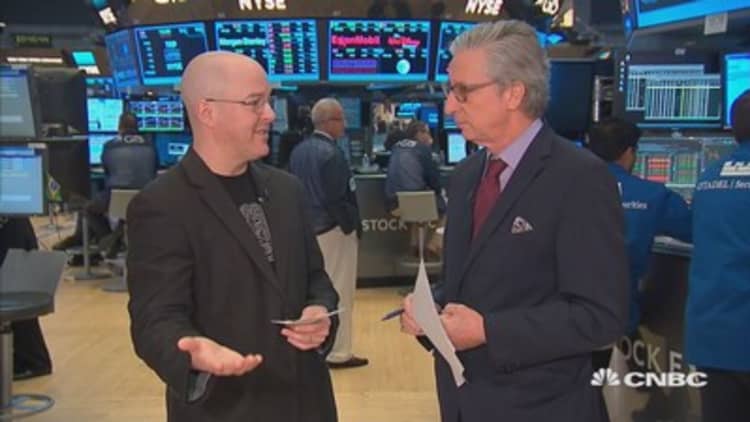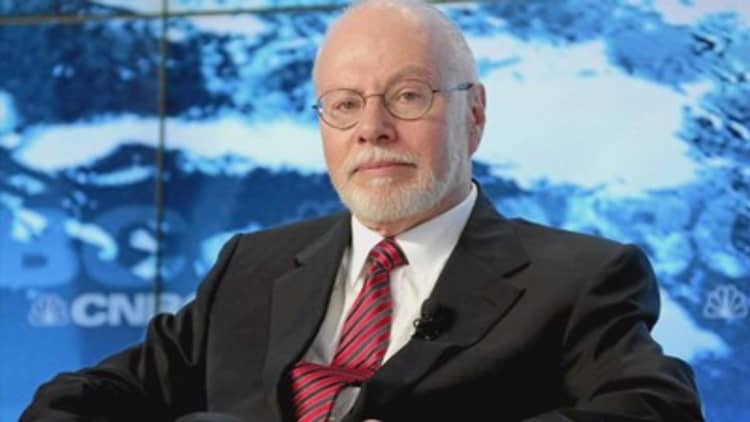
Paul Singer and some of his fellow hedge fund hotshots may not like it, but ETFs are continuing to rake in investor cash and are on their way to another record-setting year.
In fact, the $3 trillion industry ended July with $273 billion of inflows this year, within just $13 billion of setting a new high with five months still remaining on the calendar, according to State Street Global Advisors, which tracks ETF flows.
Singer, founder of Elliott Management, told clients in a letter last week that exchange-traded funds are "devouring capitalism" as they mute the voices of small investors and mitigate the risk of large investors so long as the funds replicate the indexes they track.
The funds have exploded in recent years as the popularity of passive investing has surged and the track record for active mutual fund managers has been mostly abysmal. ETFs primarily track broad market indexes like the as well as those for bonds and commodities. They don't use high-cost managers who trade in and out of positions.
In short, it's become the preferred way to play the market during a stunning bull run that began in March 2009.
Central banks like the U.S. Federal Reserve have been keeping interest rates low and liquidity flowing since the days of the financial crisis. What's resulted has been the second-longest bull market in history, pushing the S&P 500 to a 271 percent gain, and, this year in particular, market volatility to historical lows.
"Investors are generally following the central bank money," said David Santschi, CEO of TrimTabs Investment Research, which tracks market and economic data. "It's the easiest and cheapest way."
Along with the S&P's rise has come a surge in ETF assets.
The U.S. industry boasted just shy of $1 trillion in 2010 and today holds nearly $3.1 trillion, according to XTF.com. Investors have chosen passive strategies amid the low volatility and with central banks as a backstop in case instability creeps back in.
Singer isn't the only big market name to warn about where money is headed. Some worry that if central banks tone down their interventions, financial markets could become tumultuous. The Fed is amid what it hopes is a long, gradual process of normalizing interest rates and unwinding its $4.5 trillion balance sheet of bonds it mostly accrued during its post-crisis stimulus programs.
"You have artificial prices supported by central banks, and investors are just following central bank money to buy assets and ride the wave," Santschi said. "Why pay for management and research if you can just index and get the returns?"
So far in 2017, investors have been both following the stock market higher and continuing to pile into bond ETFs as well.
Equity funds have landed $190.6 billion in new money, while fixed income has garnered $82.9 billion, according to State Street. Despite a seemingly strong desire for global diversification, U.S.-focused funds have still raked in a healthy $86.7 billion, while international ETFs have seen nearly $100 billion in inflows.
"When no one is worried, they tend to easily throw caution into the wind, ignoring risks in the market and chasing winners absent of any focus on price paid," Matthew Bartolini, head of SPDR Americas research at State Street, said in a report. "So while investors should enjoy the calm for as long as it lasts, they should also remember this is not a risk-less market."
WATCH: Paul Singer explains why he thinks ETFs are "devouring capitalism."



